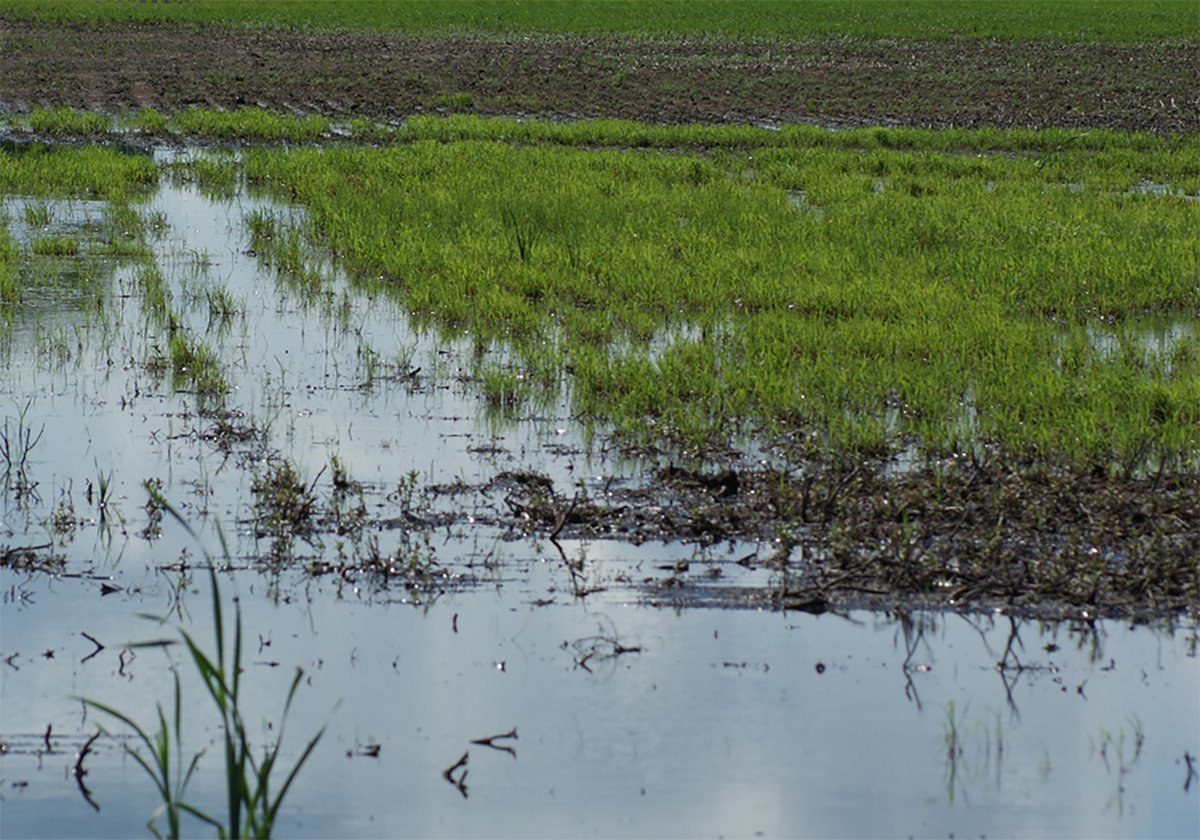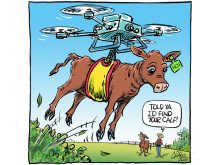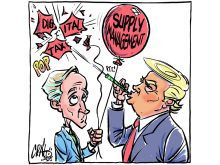One of Prairie agriculture’s most important herbicides is under siege.
The tarnishing of glyphosate’s public image has become an increasing worry in recent years, considering its vital role in modern farming.
To be clear, the herbicide is a poison. After all, it is designed to kill things — in this case, weeds.
Read Also

Topsy-turvy precipitation this year challenges crop predictions
Rainfall can vary dramatically over a short distance. Precipitation maps can’t catch all the deviations, but they do provide a broad perspective.
However, our society has been using products for decades that are poisonous if used improperly but safe if used correctly. The list is long, from toilet bowl cleaner to antifreeze. Herbicides are no different.
It’s unclear when glyphosate became the target of public suspicion, but the United Nations’ International Agency for Research on Cancer (IARC) certainly didn’t help matters when, in 2015, it classified glyphosate as “probably carcinogenic to humans.”
That finding has been rejected by Health Canada, the European Food Safety Authority, the UN Food and Agriculture Organization and the U.S. Environmental Protection Agency, which all say that glyphosate is unlikely to cause cancer.
However, the damage has been done, similar to how a flawed and quickly debunked study created a non-existent connection between vaccines and autism that continues to wreak public health havoc.
The IARC claim is the basis for the tens of thousands of lawsuits against Bayer and the Roundup herbicide that it inherited when it purchased Monsanto.
Those lawsuits have become such a thorn in Bayer’s side that the company’s chief executive officer recently threatened to stop selling Roundup in the United States if governments don’t do something to rein in the legal action.
For sure, the financial burden caused by these lawsuits is significant.
Bayer estimates that in some years it has spent more on litigation costs related to Roundup than it did on research and development of new agricultural products.
“We barely break even on glyphosate production and distribution,” Bayer CEO Bill Anderson told the Wall Street Journal last month.
“If you then factor in litigation, you’re talking US$2 billion to $3 billion in losses a year.”
Bayer has dealt with 114,000 claims regarding the safety of glyphosate, and most of those cases have been resolved or deemed to be ineligible. Still, 67,000 active lawsuits remain in the United States.
However, while the company’s frustration is understandable, the threat to remove Roundup from the U.S. market certainly raises eyebrows.
Even if Bayer stopped selling Roundup tomorrow, those tens of thousands of lawsuits aren’t going anywhere.
Bayer is leading an effort to persuade governments in the U.S. to make it harder to file lawsuits over pesticide safety, and some jurisdictions, including North Dakota, are already taking steps in that direction.
However, it’s uncertain how much success these efforts would have on easing the legal pressure Bayer is facing.
There are also concerns that a future government could take the hard-line approach seen in Europe and ban the use of glyphosate, even though the prospect seems far-fetched.
In the end, though, the main threat facing glyphosate use probably isn’t class action lawsuits or legislative moves. Instead, it’s herbicide resistance.
We’re a long way from a future where resistance issues would make it impossible to use glyphosate, but the problem continues to worsen.
Regardless of what happens on the legal and political fronts, it behooves farmers to continue using pesticides responsibly in order to protect this important weed management tool.
Karen Briere, Bruce Dyck, Robin Booker, Paul Yanko and Laura Rance collaborate in the writing of Western Producer editorials.















